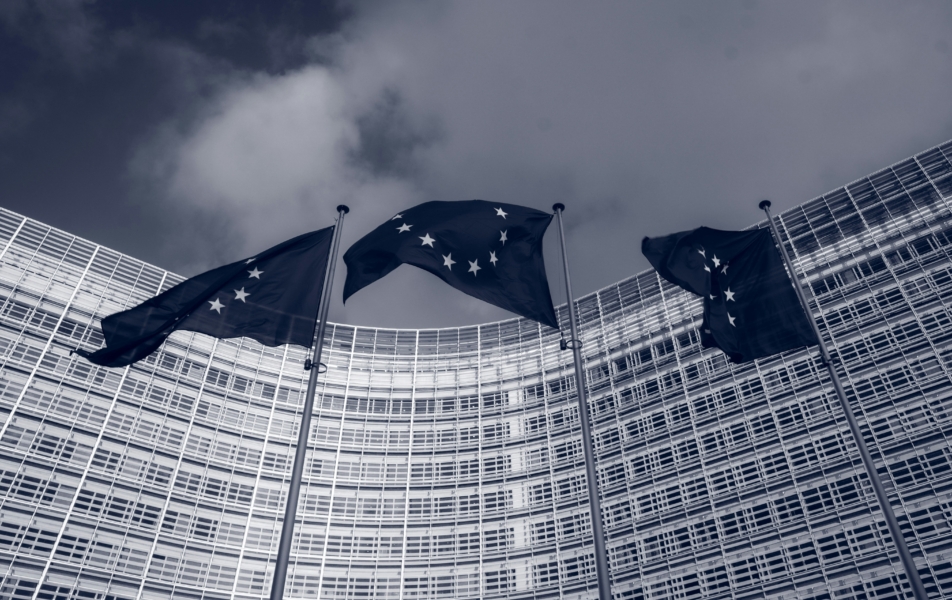The EU has a chance to make real progress against corruption across the bloc with a new Directive, but only if the European Council rises to the Parliament’s position.
While some European Union countries consistently score well on the Corruption Perceptions Index (CPI), the latest results show a decline in the region’s average for the second consecutive year. This coincides with recent scandals such as Qatargate and the Uber Files, further highlighting how corruption continues to plague the bloc.
Disturbingly, one study estimates that European countries lose €990 billion to corruption every year. The EU is not blind to the problem and is working on an Anti-Corruption Directive to harmonise anti-corruption laws across the bloc, aiming to meet – and hopefully surpass – global standards. However, this effort is now in jeopardy.
In May 2023, the European Commission proposed a Directive which the Parliament then built on with a more ambitious position in February 2024 – incorporating several of our recommendations. However, the Council released a much weaker position in June 2024, with some member states seeking to water down the law.
The three EU institutions have now entered trilogue negotiations to finalise the Directive, and it is crucial that the Council rises to the Parliament’s position. Otherwise, a weak law would be a hollow victory, ultimately allowing corruption to continue spreading within the EU.
Why does the EU need an Anti-Corruption Directive?
Currently, each EU country adopts and implements anti-corruption laws independently. This makes it easy for corruption to operate within the bloc through countries with more lenient rules. In Italy, for example, last year the abuse of office by public officials was decriminalised. Such loopholes hinder harmonisation, creating a weak link that prevents cross-border cooperation among EU member states, as crimes recognised in some countries may not be prosecutable in others.
This patchwork of rules also affects measures to prevent corruption and increase transparency. For example, lobbying regulations vary widely across the Union. In Poland, the definition of a lobbyist is so narrow that before 2024, only 19 people were required to register. In the Netherlands, voluntary registration meant just 72 people listed themselves in 2023, leaving the door open for unregistered interests to influence government in secret. Conversely, countries with better definitions like France and Germany have thousands of registered lobbyists.
There is also a huge divergence in transparency standards for political financing. Last year, it was reported that only seven out of 27 EU countries require political parties to reveal the identity of all their private donors. Our analysis shows that such loopholes – such as unregulated third-party expenditures, corporate donor opacity, untimely reporting, inadequate disclosure formats, and lack of proper oversight – remain common across the bloc, ultimately preventing voters from knowing who funds the parties and candidates of their choice.
The EU now has an opportunity ensure countries are effectively implementing commitments they have made under the UN Convention Against Corruption (UNCAC), while also ensuring specific issues relevant to EU member states are addressed in a harmonised and meaningful way. It also provides a chance to require institutions, bodies, offices and agencies of the EU to take measures that ensure the highest degree of integrity, transparency and accountability across the bloc.
What is the Council’s position?
EU legislation is proposed by the European Commission but must be negotiated and agreed upon by consensus between the European Parliament and the Council. The Council is made up of the governments of each EU state, and in the case of the proposed Directive, it seems to have become a forum for those with weak anti-corruption measures to undermine it. Certain countries have resisted specific measures to maintain the status quo within their borders – such as Italy, which has sought more flexibility in the Council’s position on criminalising abuse of office, which would allow the country to maintain its recent reforms.
Overall, the Council’s proposal restricts the power of the Directive on two levels – prevention and criminalisation. It devalues prevention measures and yet simultaneously lowers the statute of limitations – making it more difficult to stop corruption before it occurs but also to prosecute once it’s happened. Specifically, in terms of prevention, it limits transparency and disclosure requirements, so that it’s more difficult to detect corruption and for states to work together to uncover it.
To make matters worse, the proposal introduces language that creates more loopholes and potentially makes transposition more difficult. In some cases, the wording is weaker, making it easier for unclear cases to slip through. In others, it’s so specific that it only applies in rare situations. For example, the Council’s softer stance on influence peddling mirrors the language used in Irish law, which requires proof of stronger ‘improper influence’ for criminal cases – ensuring a higher burden of proof that makes successful prosecutions harder. In contrast, UNCAC standards use the broader term ‘real or supposed influence.’
How could the Anti-Corruption Directive be most effective?
The Directive presents an opportunity for the EU to address corruption risks across all member states and ensure that each one – without exception – has effective anti-corruption prevention and enforcement mechanisms. The Parliament has provided a model for what a strong prevention framework could look like. Moreover, the fact that many of these provisions are already implemented in some member states demonstrates their feasibility and practicality. In particular, a robust set of integrity tools, including the disclosure and verification of public officials’ assets and interests, management of conflicts of interest, checks on the revolving door between business and government, adherence to open data principles, and transparency in political party financing, would make it significantly harder for corrupt actors to operate across the bloc.
Key measures are also needed to empower law enforcement and hold the corrupt accountable. One crucial step is establishing a framework for non-trial resolutions that promotes transparency and fair outcomes. As negotiated settlements become more common, clear rules must ensure they serve as a real deterrent, not just the cost of doing business for offenders.
Equally important is protecting victims’ rights and remedies. Citizens and states harmed by corruption must be identified, informed, included in legal processes, and fairly compensated -especially since many lack the resources to pursue cases themselves. Civil society representation should also play a role, allowing organisations to seek justice on behalf of affected groups and reducing over-reliance on authorities to represent both state and victim interests. Mandatory corporate criminal liability is also essential to hold businesses accountable, even when individual perpetrators cannot be identified.
The chance to make it count
The EU Anti-Corruption Directive has the opportunity to take a significant step forward in tackling corruption in the EU and ensuring government works better for citizens. But this will only happen if the Parliament and Commission are able to hold strong against those countries seeking to undermine from within the Council. The chance for real change stands on the precipice because the fact remains: The Commission and Parliament proposals could help prevent the next Qatargate. The Council’s won’t.





